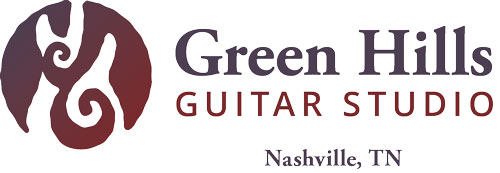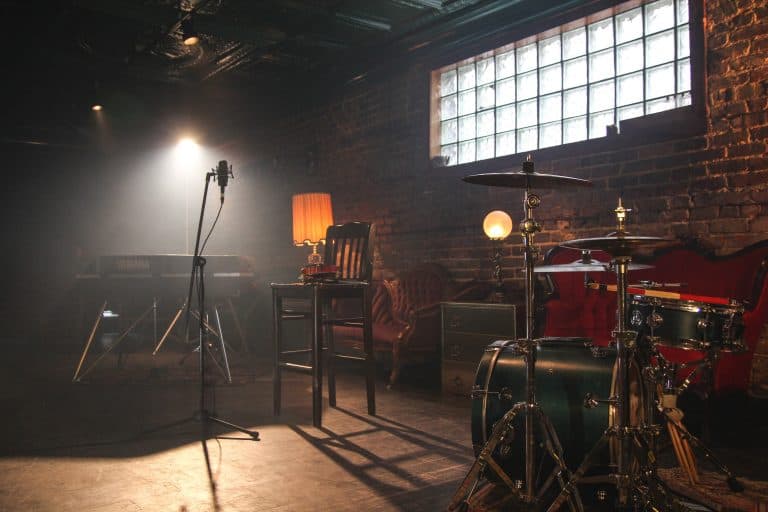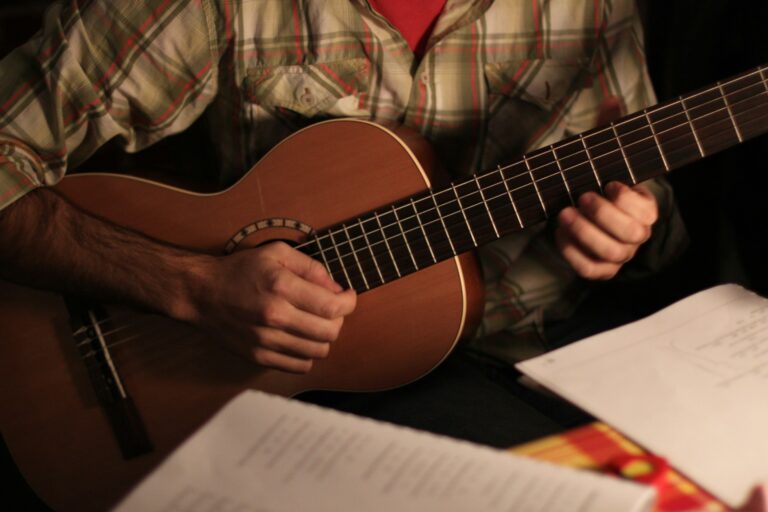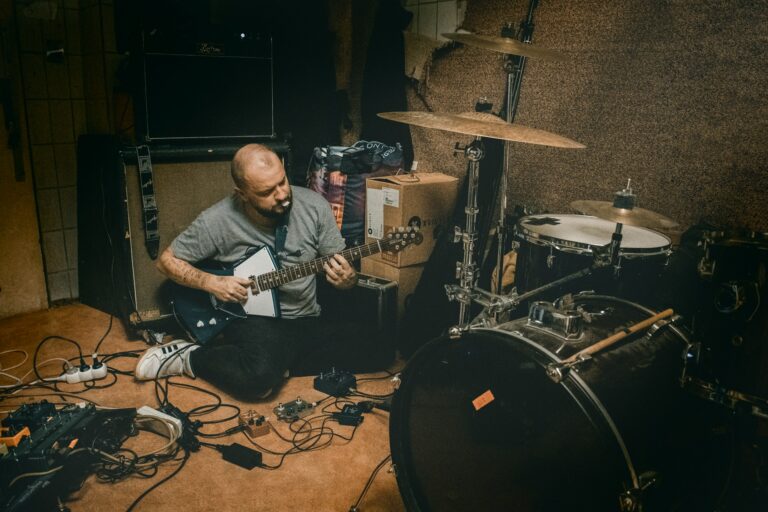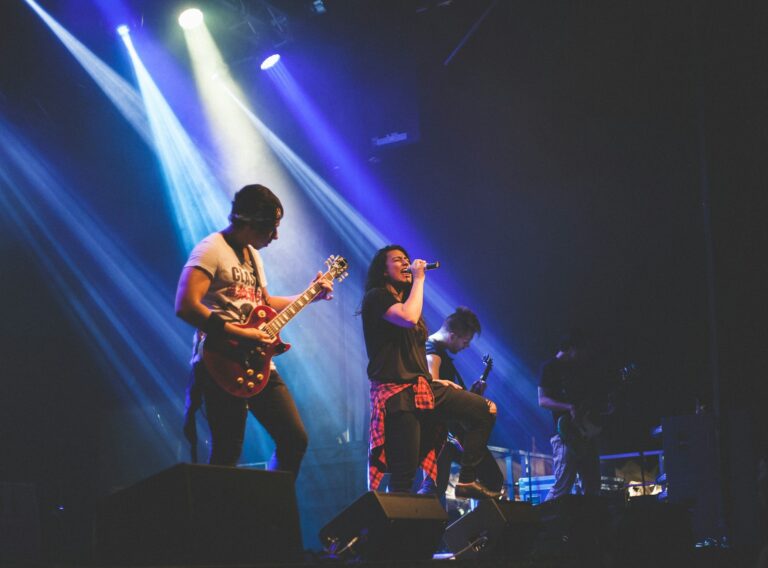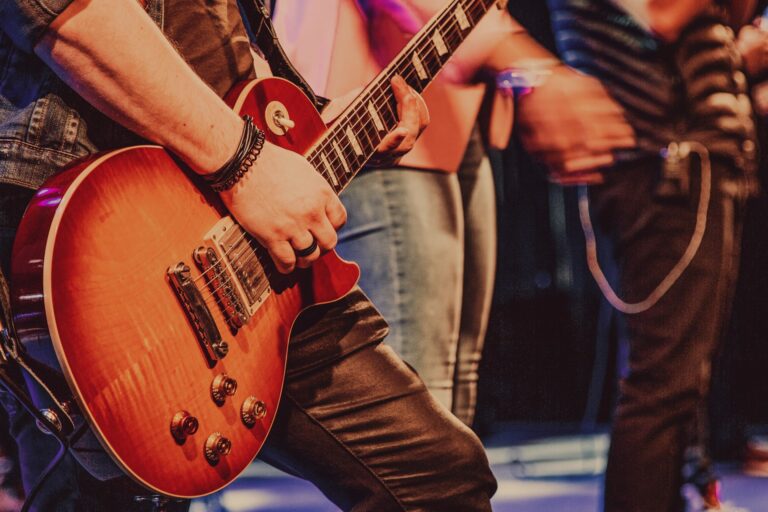5 Ways to Overcome Stage Fright for Musicians
Stage fright—often known as performance anxiety—is more than just a “nervous feeling.” For many musicians and songwriters, it’s the invisible barrier that stops you from delivering your best live performance.
Whether you’re a beginner or an experienced artist, the fear of being judged or making mistakes can be debilitating. In bustling music scenes like Nashville, where competition is fierce, and every gig matters, managing this anxiety is crucial.
Over the years, I’ve experimented with various techniques—many of which I’ve honed right here in Music City—to hack away at those nerves and unlock my creative flow on stage. In this post, I’m sharing five proven strategies that will help you transform stage fright into stage confidence.
Understanding Stage Fright and Performance Anxiety
Before we discuss solutions, it helps to understand stage fright. Performance anxiety is a mix of nervousness and fear experienced before or during live performances. It stems from concerns about being judged, making mistakes, or not meeting expectations—both your own and those of your audience.
Our brains are wired to respond to such threats with a “fight or flight” reaction, even when no physical danger exists. This natural response, which might have once kept our ancestors safe, can now hinder our ability to perform with clarity and passion.
In a city like Nashville—where every performance is part of a larger ecosystem of creativity and competition—managing this anxiety isn’t just important; it’s essential. Now, let’s explore five proven strategies to conquer stage fright and boost your live performance confidence.
1. Preparation and Rehearsal
Nothing beats thorough preparation when it comes to diminishing performance anxiety.
The more familiar you are with your material, the less room there is for nerves to creep in. Preparation isn’t just about knowing your chords or lyrics—it’s about building a comprehensive performance blueprint that minimizes uncertainty.
Actionable Tips:
- Rehearse Under Realistic Conditions: Transform your practice space into a mini‑stage. Set up your equipment and lighting and even simulate stage acoustics—as if you were at a Nashville venue like The Basement East or The 5 Spot. Invite friends or fellow musicians to act as a mock audience. Rehearsing in an environment similar to your live gigs builds muscle memory and eases the shock when the real show comes around.
- Develop a Detailed Setlist: Commit to a specific order of songs and practice every transition. For example, if your setlist features tunes such as “Tennessee Whiskey” or “Wichita Lineman,” work on seamless transitions so the flow becomes second nature.
- Record Your Rehearsals: Use a smartphone or digital recorder to capture full run‑throughs of your set. Listening back can reveal timing issues and highlight areas for improvement. Over time, these recordings serve as proof of progress, reassuring you that every mistake is simply an opportunity to refine your performance.
Example:
I once recorded a complete rehearsal in a room set up to mimic a local Nashville club. After reviewing the footage, I pinpointed specific transitions that needed work. This process showed me that my performance anxiety was rooted in the unknown and that with sufficient preparation, I could control nearly every element of my live show.
For musicians in Nashville and beyond, mastering your material through rigorous preparation turns every performance into a well‑orchestrated event and dramatically reduces the mental burden of uncertainty.
2. Embrace Mindfulness and Controlled Breathing Techniques
Stage fright is as much a mental challenge as it is physical, and mindfulness is a powerful tool to overcome it.
Mindfulness practices and controlled breathing techniques (or habit bundle with vocal breathing warm-ups) help calm the nervous system and shift your focus from anxiety to the present moment. These strategies are especially effective for artists gearing up for high‑energy performances in vibrant music scenes.
Actionable Tips:
- Practice Deep, Diaphragmatic Breathing: Dedicate a few minutes each day to deep breathing exercises. Inhale slowly through your nose, hold briefly, then exhale through your mouth. This technique not only lowers your heart rate but also induces a state of calm essential for managing performance anxiety.
- Integrate Guided Meditation: Use meditation apps or online videos designed for performance visualization. A short, five‑minute session before a gig can quiet your mind and help you focus on your upcoming performance rather than the “what ifs.”
- Focus on Sensory Details: When nerves start to rise, take a moment to ground yourself by noticing sensory details—the feel of your instrument, the ambient lighting of the venue, and even the murmur of the crowd. This practice pulls you from anxious thoughts and anchors you in the present.
Anecdote:
Before a challenging gig, I took a five‑minute mindfulness break backstage. I closed my eyes, focused solely on slow, controlled breathing, and visualized my fingers gliding over the fretboard. That brief pause transformed my anxiety into a calm, focused energy that carried me through the entire performance.
Mindfulness and breathing techniques are indispensable tools for any musician facing stage nerves. They help you channel anxiety into performance energy rather than let it paralyze you.
3. Use Visualization and Positive Affirmations
Visualization isn’t just for elite athletes—it’s a proven technique for building mental resilience in musicians.
Mentally rehearsing a successful performance rewires your brain to expect positive outcomes. Coupling this with positive affirmations can reinforce your self-belief and bolster your stage confidence.
Actionable Tips:
- Daily Visualization Practice: Spend a few minutes each day picturing yourself on stage. Imagine every detail: your confident posture, the smooth flow of your performance, and the enthusiastic applause from the audience. For instance, visualize yourself performing at a renowned Nashville venue, feeling that energy surge as you play.
- Craft Your Positive Affirmations: Develop affirmations that resonate with your experience. Phrases like “I am a confident performer,” “I own the stage every time I perform,” or “My music connects me with my audience” work wonders. Repeat these affirmations, especially just before you step on stage.
- Combine with Your Warm-Up: As you warm up physically—stretching or running through scales—simultaneously engage in visualization. Picture the crowd’s positive energy fueling your performance. This combined approach reinforces mental and physical readiness.
Example:
I recall a Nashville songwriter friend who battled crippling nerves. Each day before rehearsals, he would stand in front of a mirror, visualize his upcoming performance, and repeat his mantra: “I am in control. I am a fearless performer.” Over time, his stage jitters diminished, and his performances became notably more confident and relaxed.
Visualization and positive affirmations are powerful because they prime your mind for success, making them essential tools for overcoming stage fright.
4. Develop a Consistent Pre‑Show Routine and Performance Rituals
Routines bring structure to the chaos of live performance, making the unpredictable more manageable.
A consistent pre‑show routine not only builds confidence but also helps you enter a focused, performance‑ready state. This is particularly valuable for musicians who perform in a variety of venues—from intimate local clubs to major festivals.
Actionable Tips:
- Establish a Pre‑Show Checklist: Develop a step‑by‑step routine that might include warm‑up exercises, deep breathing, visualization, and a final review of your setlist. Over time, this checklist becomes a ritual that signals your mind: “It’s showtime.” Integrate keywords like “Nashville pre‑show routine” naturally in your process.
- Incorporate Physical Movement: Engage in light stretching or a brisk walk backstage. This helps release any lingering tension and clears your mind for the performance ahead.
- Choose a “Power Song” for a Final Warm‑Up: Identify a song that always lifts your spirits and instills confidence. Playing a snippet of this tune as your final warm‑up acts as a musical pep talk, reinforcing your readiness to perform.
Anecdote:
Before every gig, I retreat to a quiet corner backstage for exactly ten minutes. I do a series of stretches, mentally run through my setlist, and play a quick riff of an upbeat “power song.” This ritual has become a cornerstone of my pre‑show routine, consistently reducing my anxiety and setting the stage for a confident performance.
For musicians across the country, establishing a consistent pre‑show routine transforms nervous energy into focused readiness.
5. Build a Support Network and Seek Constructive Feedback
No artist thrives in isolation—especially in a vibrant music community like Nashville.
Surrounding yourself with a strong local network of peers, mentors, and industry professionals can transform your mindset and dramatically reduce performance anxiety. While Nashville offers a particularly rich ecosystem of support, the principles here apply to musicians and songwriters everywhere.
Actionable Tips:
- Join Local Music Communities: Participate in open mic nights, jam sessions, and music meetups. This engagement not only offers practice opportunities but also fosters a sense of belonging and support.
- Connect with Local Mentors: Nashville is home to many seasoned performers who have overcome stage fright themselves. For mentorship, reach out to local music teachers, established musicians, or performance coaches. Their firsthand experiences and advice can be invaluable, offering tailored strategies to navigate the unique challenges of live performance in a competitive market.
- Attend Workshops and Industry Events: Look for Nashville-hosted workshops, seminars, or networking events—whether at music schools, recording studios, or cultural centers. These events provide both educational opportunities and the chance to gather constructive feedback from experienced professionals. Even if you’re not based in Nashville, similar local communities can offer the same support.
- Embrace Constructive Feedback: Actively seek feedback from trusted peers, instructors, or even audience members. Rather than fearing criticism, view it as a tool for improvement. Honest, constructive feedback helps you identify specific areas to enhance your performance, building confidence with every small victory.
Example:
I once mentored a musician who was terrified of performing solo. I encouraged him to attend weekly jam sessions at a mid-town pizza joint that sadly no longer exists. There, he connected with other local artists, received genuine, supportive feedback, and gradually transformed his nerves into excitement. His transformation exemplifies how a strong support network can empower you to overcome stage fright and thrive on stage.
Building a support network in Nashville—or in any local music community—reinforces that you are not alone. It reminds you that many others have faced and conquered similar challenges and that with the right mentorship and peer support, you, too, can shine as a confident, fearless performer.
The Coda: Turning Stage Fright into Excitement
Stage fright is a common challenge for musicians and songwriters, but it’s one you can overcome with the right strategies. By mastering your preparation, practicing mindfulness and controlled breathing, using visualization and positive affirmations, developing a consistent pre‑show routine, and building a robust support network (with a special nod to Nashville’s vibrant community), you can transform performance anxiety into a driving force for success.
Each of these five strategies offers a unique approach to overcoming stage fright, and when combined, they form a comprehensive plan for building lasting stage confidence. The key is consistency and persistence—small, incremental changes accumulate over time, leading to significant improvements in your performance.
Now it’s your turn: choose one of these strategies and start incorporating it into your daily practice and performance routine. Experiment with these techniques at your next gig—whether you’re playing at a local Nashville venue or on a stage elsewhere—and observe how your nerves shift into excitement and focus. Share your experiences with fellow musicians, and if you have additional tips or success stories, let your community know.
Take action today: Try one of these methods at your next performance, and notice the difference. Overcoming stage fright isn’t about eliminating nerves entirely—it’s about harnessing that energy to deliver an unforgettable performance. Embrace these techniques and watch as the stage becomes your platform to shine, no matter where you are.
If you need help with performance, musicianship, or songwriting, Green Hills Guitar Studio offers a range of lessons designed to elevate your skills. We provide both in-person instruction in Nashville, TN, and online lessons accessible from anywhere.
